|
Getting your Trinity Audio player ready...
|
He was the first coach of the London Lightning, leading them to their first two championships. This month, Michael Ray Richardson, 70, passed away, leaving a complicated legacy that included NBA All-Star status, a ban from basketball, and a redemptive coaching career.
I’ll always remember that poster. The one that hung on my childhood bedroom wall in Mattoon, Ill. There he was, Michael Ray Richardson. White tuxedo. Top hat and tails. White Nike Blazers and blue swoosh. Big apple in hand. Cardboard cut-out of the New York City skyline behind him.
Cheesy today, yes. But back then, he was the essence of 1980s cool. I was too young to understand the demons behind that smile, too naïve to read the sadness hidden in his eyes. But, man, could he play. To a kid, he looked like basketball incarnate: Smooth. Creative. Just dangerous enough to make you believe greatness was its own kind of rebellion.
Decades later, he walked into Budweiser Gardens as the first head coach of the London Lightning. In a city that hadn’t yet learned how to cheer for professional basketball, Richardson was a strange kind of legend to land, an exile from the NBA, four-time All-Star, and one of the most electrifying point guards of his era.
To London fans, he became something else entirely – the man who built a champion from nothing and made pro basketball matter.
Last week, Richardson died in Lawton, Okla., at 70, just months after being diagnosed with prostate cancer. The news landed softly in national headlines but heavily in London, where people still remember those early seasons as something magical. Raw, loud, and improbably alive, it’s tempting to call it a comeback story for Richardson. But maybe that’s too small.
* * *
When I spoke with Richardson last year, in what turned out to be his final interview about his time in London, he was relaxed and reflective. He’d just finished his autobiography, Banned: How I Squandered an All-Star NBA Career Before Finding My Redemption. Published in November 2024, the book was part confession, part resurrection.
“It’s about getting up,” George Gervin wrote in the foreword (another star whose Iceman Nike poster had shared space on my bedroom wall). “Everybody gets knocked down. It’s about getting up.”
Nancy Lieberman, his longtime friend, offered a simpler epitaph: “Pressure makes pipes explode. But pressure also makes diamonds. And Michael Ray Richardson is a diamond.”
Richardson sounded proud when he talked about London, almost protective. “I had a great time,” he said. “Met some great people. I felt very much at home there.”
By the time he arrived in 2011, he had already lived several basketball lives: All-Star. Outcast. Champion in Europe. Itinerant minor-league coach. The Lightning job came after a stint in the Premier Basketball League, where he’d already won titles. When that league folded, London called (or maybe he called London). The detail didn’t seem to matter anymore.
“When I got to London, I had my plans already for building something special,” he said. “You go around town, meet people, get sponsors. That’s how you start something from zero.”
The on-court team he assembled was an odd mix of grit and pedigree, many from Richardson’s previous stops: Sean Daniels, DeAnthony Bowden, Brandon Dean, Tim Ellis, Jonathan Mills, Rodney Buford.
“I was trying to win,” he said, “and that’s what we did.”
* * *
It’s easy to forget how experimental those early National Basketball League of Canada seasons were. Outside of London, the arenas were small, the travel brutal, the schedules off, and the budgets closer to a school district’s than a professional franchise’s.
Yet London was the premiere organization in this dawning league. Here, Richardson’s team drew the league’s first sell-outs. They didn’t just win for fans; they mattered to fans.
He credited it to hustle off the court as much as on.
“(Former Lightning GM) Taylor Brown and I were out there meeting people, shaking hands, visiting sponsors face to face,” he recalled. “We practiced at schools. We were in the community a lot. That matters when you are building something. That matters when you want to keep something going. Showing up is everything.”
His tone carried no self-congratulation, just the pride of a man who knew how fragile new things can be. Maybe that was his secret. He’d already lost everything once.
When Richardson was banned from the NBA in 1986 for repeated drug violations, it was the first lifetime expulsion under Commissioner David Stern’s new policy. It turned a mythic rise into a moral cautionary tale.
Overnight, the newspapers rewrote him from “Sugar” to “Scandal.” He played overseas in Italy and France. Won titles. Learned Italian. Ate amazing food. Stayed sober. Yet, even after three decades, he knew that word banned still trailed him like a shadow.

But that never stood in the way of his goals, he said.
“I love the game. I knew the game,” he said. “I knew what it takes to be successful as a coach. On the court, you need a good big man and a good point guard. The point guard has to be a coach on the floor while I’m the coach on the bench.”
The metaphor was too perfect to ignore. The man once expelled for lacking control had built a second career teaching control to others.
He credited former Spurs coach Bob Hill for shaping his philosophy.
“Bob was a great communicator,” Richardson said. “He knew how to get the best out of his players.”
You could tell he’d absorbed that lesson. He spoke about the value of conversation, the patience to listen. His sentences still came in fits and pauses, the lifelong stutter that made his voice instantly recognizable, but his thoughts were clear and deliberate.
* * *
Richardson’s story exposes what might be called the North American allergy to ambiguity. We want our athletes to be one thing at a time.
Hero or cautionary tale.
Champion or addict.
We don’t know what to do with someone who keeps becoming someone else.
Richardson was that paradox, both cautionary and comforting, a man who proved redemption isn’t a sequel but a shift in genre. His NBA career had the pacing of a morality play: Meteoric rise. Public fall. Tidy ending.
But London gave him an epilogue that refused to moralize.
He balked when I said the word. He didn’t want to talk about redemption the way memoirists or preachers do. He talked about routine. He spoke in the words of practice schedules, community visits, fan energy. He talked about the hum of a gym on a Friday night.
“Out of all my coaching spots,” he said, “my best time, with my fan base and everything, was in London, Ontario. We had that place rocking.”
That sentence hits harder now, partly because the crowd noise has stopped in the Forest City. The team that once gave him and the city part of its sporting identity is gone.
The London Lightning, seven-time champions across two leagues, have folded, choosing to sit out the upcoming Basketball Super League season after what management called “ongoing instability at the league level and uncertainty regarding viable teams.”
Their social media pages deleted. Banners pulled down from Canada Life Place. The franchise will “step away” indefinitely, with its future a question mark hanging over an empty arena.
The timing is eerie. The death of the man who helped build the franchise landing within months of the franchise’s own death. London’s basketball experiment, born with him, seems to have died with him, too.
Yes, Richardson’s death and the team’s withdrawal are unrelated events linked only by coincidence. But in London, a city that measures its civic confidence through the fortunes of its sports teams, the symbolism is too clean to go without comment.
When the Lightning first took the court, they represented possibility that a mid-sized Canadian city could make basketball feel major-league. When they walked away, it represented something else, showing that even possibility needs stewardship. Until recent years, the team embodied what Richardson taught, that winning was only half the job, but it was showing up that mattered more.
When the organization stopped showing up, so did the crowd. When the crowd stopped showing up, well, that’s how you get a long, hoopsless winter.
* * *
During our talk, Richardson laughed when the conversation turned to records and legacy.
He was surprised to hear about a near-empty area with fans huddled in the lower bowl, when he was seeing fans in the rafters just a decade or so ago. His competitiveness was intact, but with a somewhat playful edge. I mentioned Doug Plumb, the head coach whose name was creeping up the Lightning record book.
Richardson compiled 84 regular-season wins in three years: 28-8, 33-7, 23-17. Plumb, across four seasons, managed 74 wins and three championships. Richardson wasn’t having any talk of his record being passed, however.
“If he (Plumb) passes me,” he said, “it took him five years or more. He didn’t really pass me because I did mine in three. So, he’s not beating my record. He’s setting his own record, but that doesn’t mean anything to me.”
That little flash of brass – half brag, half benediction – reminds me that confidence, like redemption, never really leaves you. It just changes its tone.
* * *
The thing about London in those early NBLC years is that the city didn’t yet know it could feel that way about basketball. The London Knights dominated the local psyche. Basketball was an experiment. Richardson gave it credibility. His name carried the residue of NBA mythology. Seeing him on the sideline striking in a tailored suit with a commanding posture made the whole enterprise seem legitimate.
“I think just because of my basketball background, people saw the part of that we put on the floor. It was the first time they’d had something like that.”
He was right. The Lightning became a curiosity, then a habit, then a point of pride. When they won back-to-back titles, it felt like more than sports. It felt like a city discovering it could reinvent itself in real time.
In that way, London might have saved him as much as he saved London basketball. It gave him a stage scaled to his peace.
* * *
There’s a line in Banned that lingers: “I ain’t no saint, but I learned that when you help somebody else, you help yourself.”
It’s not what you expect from a man once defined by ego and chaos. But by the end, that’s who he was, a mentor running youth camps across Florida, New York, and New Jersey with former NBA star Otis Birdsong. “We’ve been doing about eight camps a year,” he said. “Averaging about 125 kids each. It’s been really good to us.”
There’s a quiet symmetry there as the man who once lost a league now building one, camp by camp, for kids who’d never heard the word ban.
When athletes die, the temptation is to flatten them back into the binaries we understand.
The fall and the redemption.
The talent and the tragedy.
But Richardson’s real triumph was continuity. He didn’t reinvent himself so much as refuse to disappear. He kept showing up in gyms, on the courts, in small towns, in London until the noise of life drowned out the noise of judgment.

Gervin said Richardson “deserves to have his flowers.” Maybe London was his bouquet.
There’s poetry in where his story ended. Lawton, Okla., a quiet, unassuming town, far from the Madison Square Garden spotlight. It’s where he first coached, where he learned to rebuild from scratch, and where, eventually, he died.
The geography of redemption is rarely glamorous.
When he talked about that grind, he did it with reverence.
“You can take the coach and the general manager out to meet people face to face,” he said. “It’s easier for the community, for the fans to see what they’re getting that way.” A practical line, but also a philosophy that sees basketball as relationship, not spectacle.
Maybe those nights in the Forest City were his truest conversations. Every play was a sentence he could finally finish. Every timeout was a dialogue that went somewhere.
Often when we think back, we look through our rose-coloured glasses. Everything wasn’t perfect in Richard’s day. The crowds were smaller than we remember, the league shakier, the rosters constantly shifting, the coach-ownership relationship shakier.
But memory edits for meaning. What remains is the feeling – the sound, the novelty, the improbable sense that this forgotten NBA star found peace among us.
Yes, he was just coaching a team, but he was also conducting an experiment in collective memory. Could a man once banned become beloved? Could a reserved Canadian city become raucous? For a few winters, the answer was yes.
* * *
When I hung that poster as a kid, I thought I was looking at a hero. When I took it down, sometime around high school, I figured I was making room for someone better. Now, decades later, living in another country, I find myself putting him back up in my mind – not the young Sugar in a tux, but the older one in a blazer on the Lightning sidelines, smiling at the crowd.
We talk a lot about legacy in sports, but we usually mean statistics, banners, and bronze. Richardson’s legacy is something smaller and truer. It’s about persistence and the willingness to keep showing up even when the story’s supposed to be over.
London doesn’t have its team anymore. But for a few seasons, it had Michael Ray Richardson, and that was enough to make a city remember how to cheer.
That’s how I’ll remember him. Not as the poster, not as the headline, but as the echo that still lingers in a city that learned to love a man who finally learned how to stay.
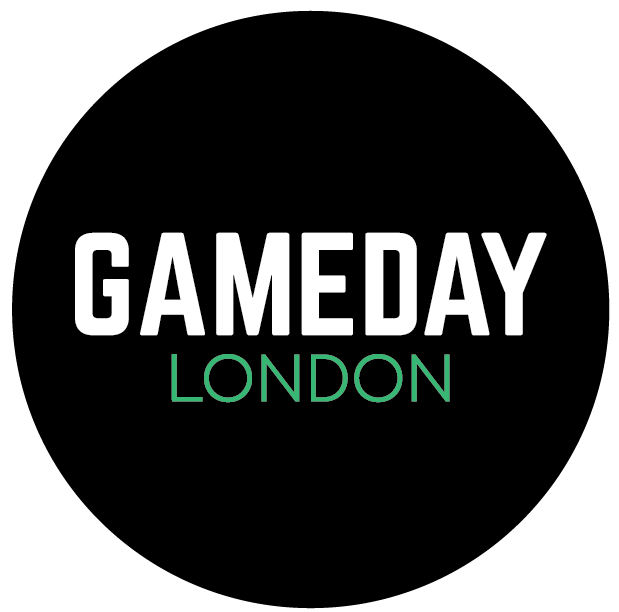

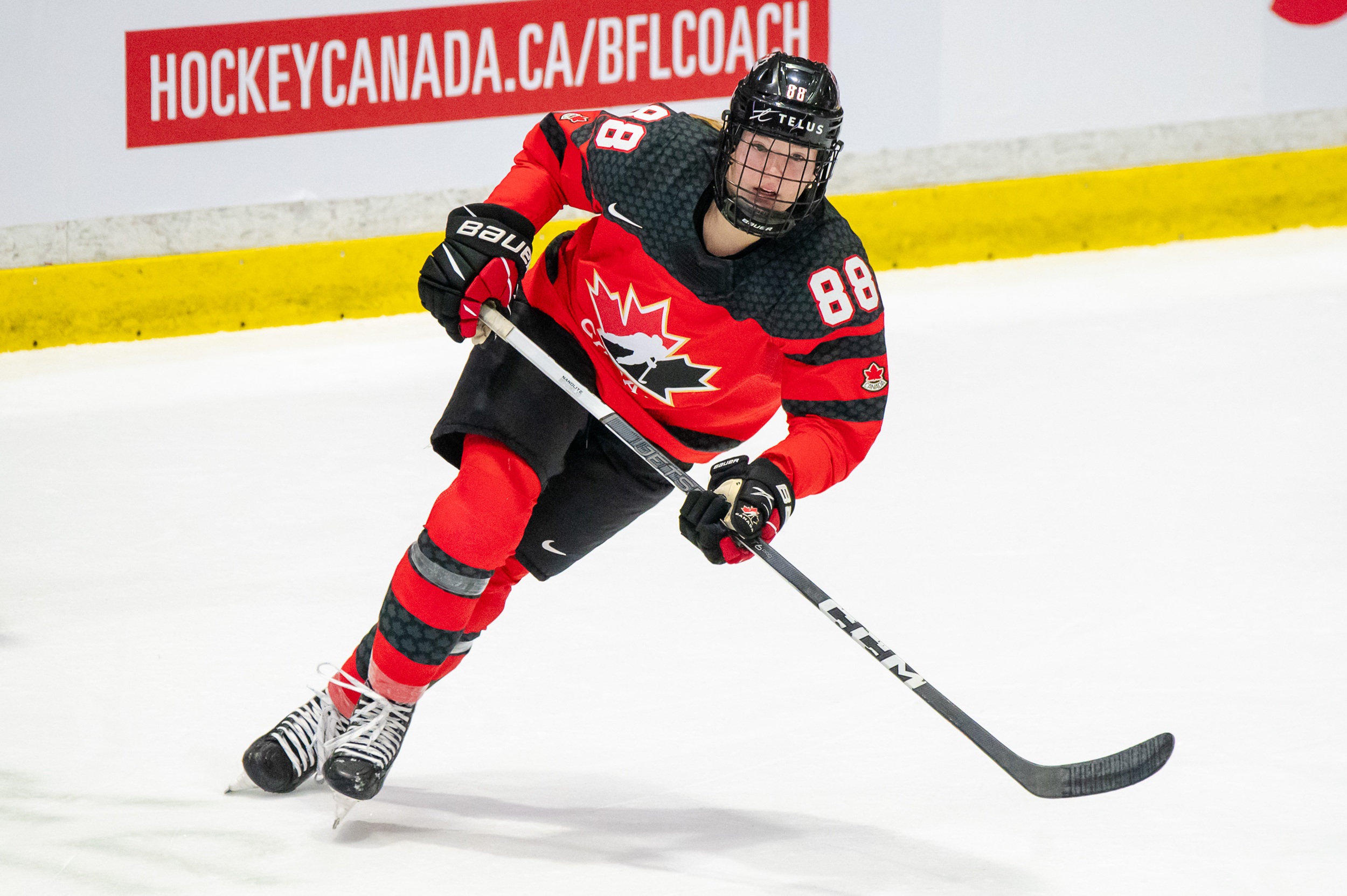
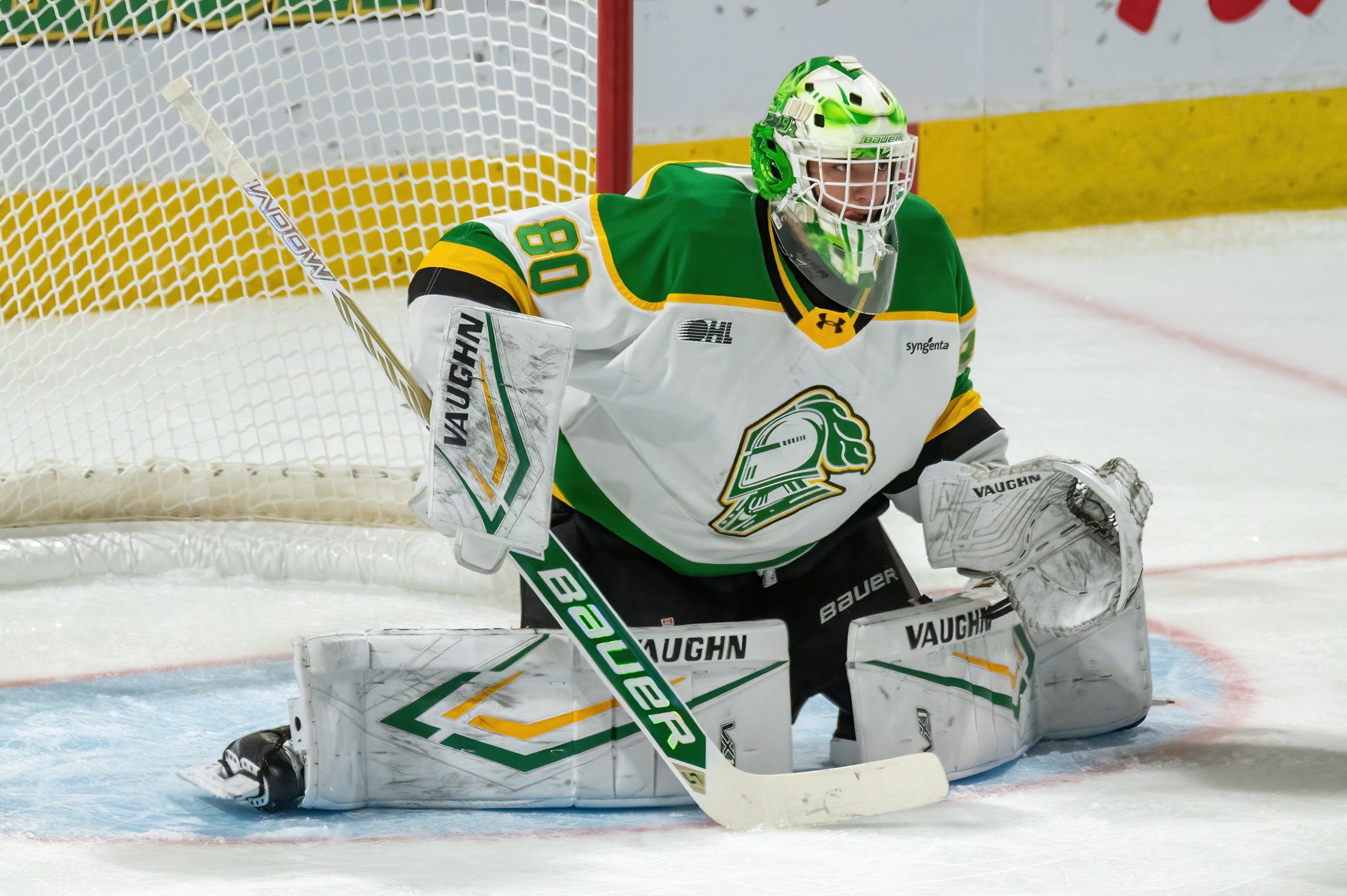
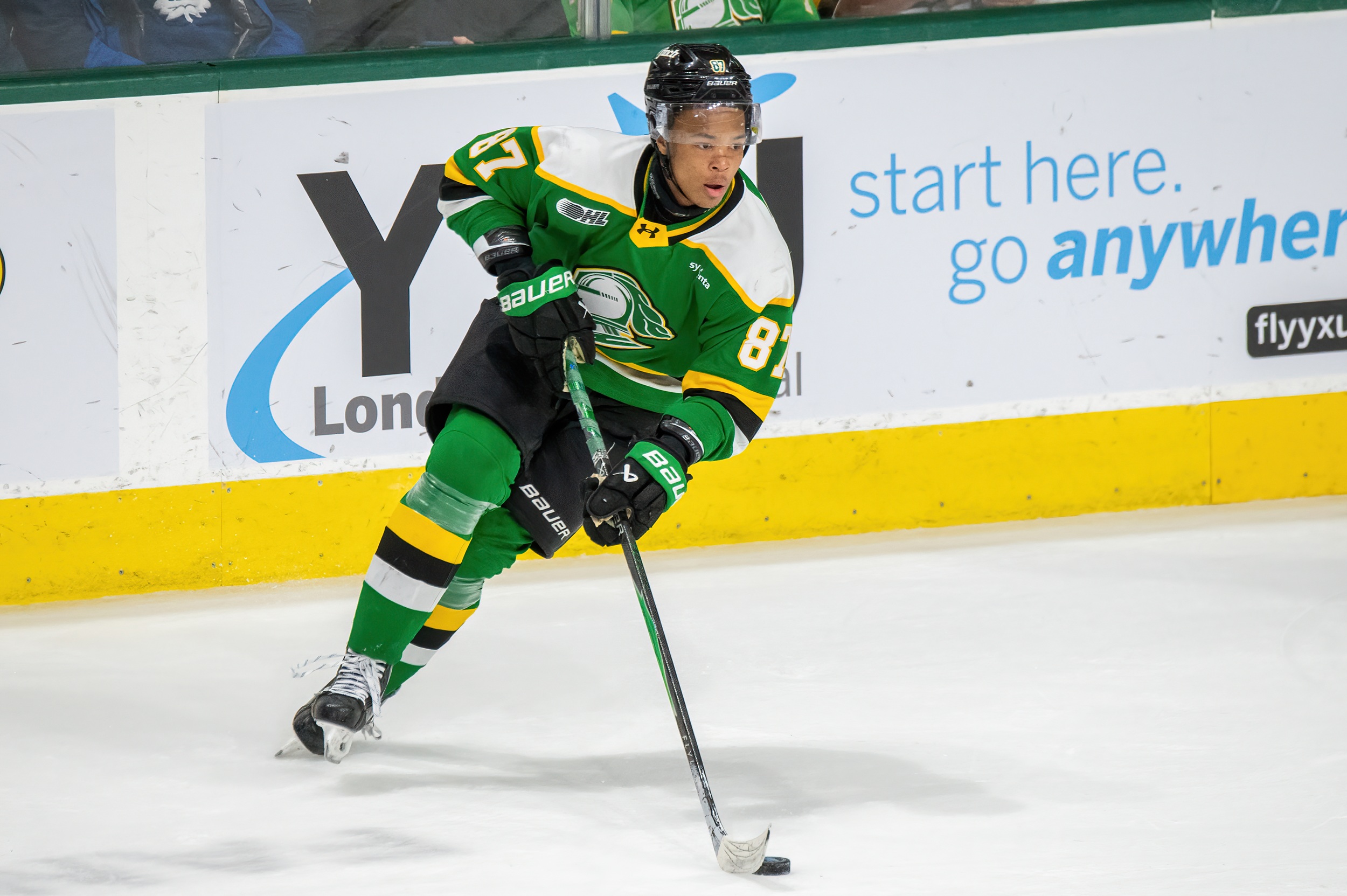
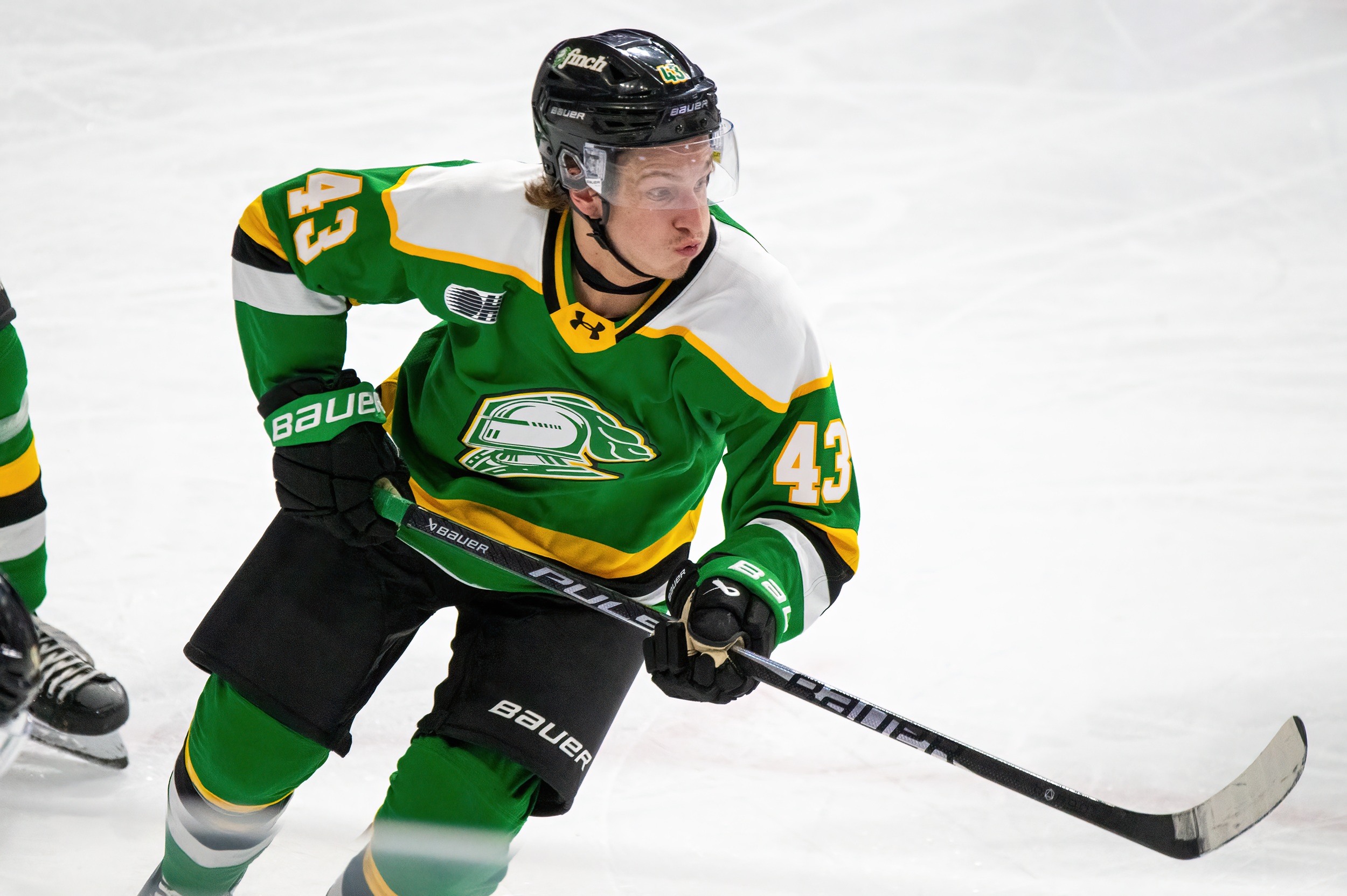
2 Responses
Wow!
Jason Winders knows to WRITE.
We are so fortune that Jason found his way from the middle of Illinois to Southern Ontario.
Thanks for bringing back those memories of fans in all levels of the Bud, players who didn’t whine on every whistle and of a man on the sidelines who had a passion for the game.
Michael Ray gave us a chance to love the game of basketball and Jason’s words are as finest tribute as can be had.
Great tribute! Really well written. Thanks.